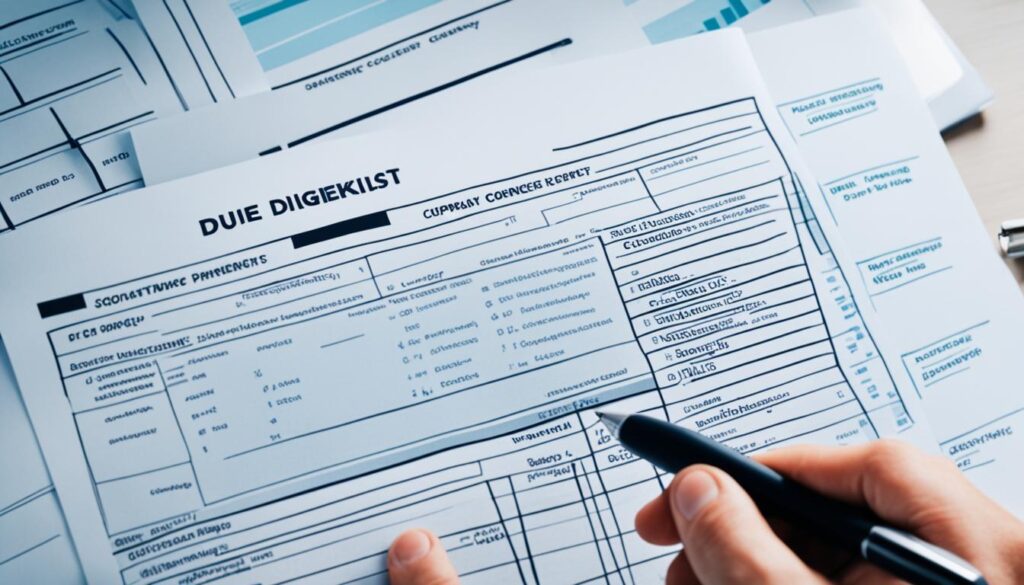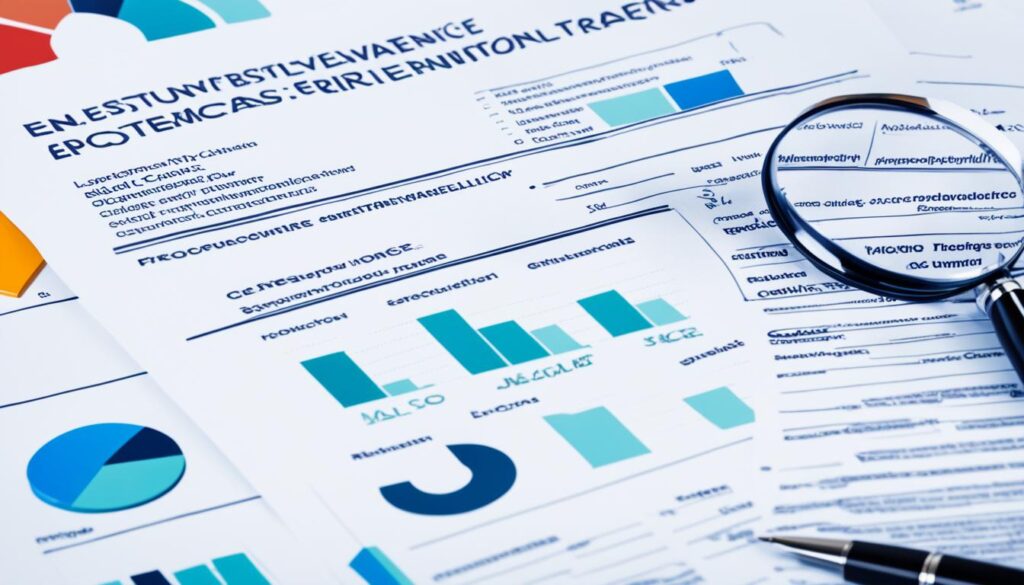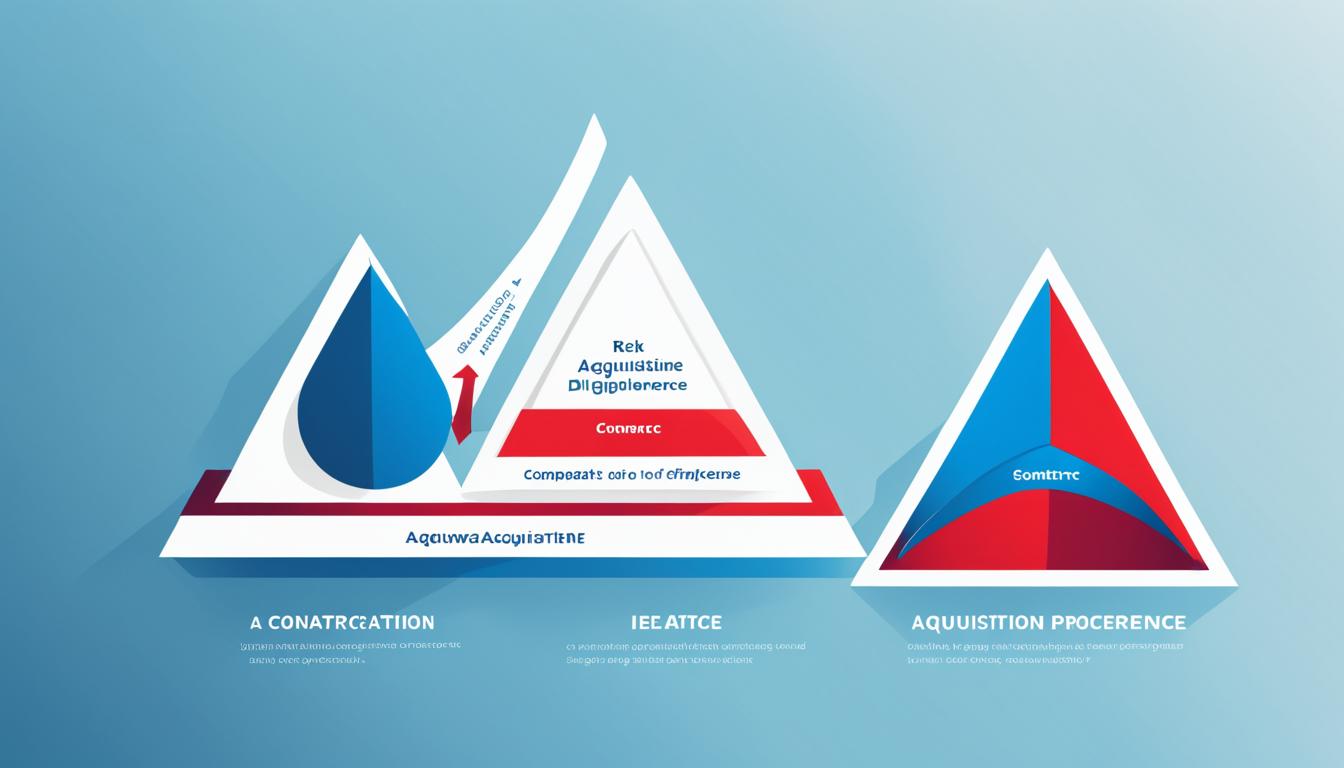In charting a path for corporate growth, software acquisition due diligence is key. This in-depth check is done by potential buyers to see a company’s health and future fit. It proves the company’s worth, promise, and how ready it is to merge.
The tech world changes fast, making a smart software acquisition strategy vital. This strategy looks deeply into every aspect, checking each byte of code and innovation claim. Taking this full view during a software company evaluation reassures investors and guides their decisions.
Key Takeaways
- Software acquisition due diligence underpins the M&A process with critical assessments.
- A detailed due diligence strategy fortifies software acquisition outcomes.
- Comprehensive software company evaluation identifies potential hurdles and opportunities.
- The value realized from a due diligence guides sustainable integration plans.
- Transparency and meticulous documentation form the backbone of successful software M&As.
Understanding the Software Acquisition Due Diligence Process
The key to a successful software purchase is software acquisition due diligence. This step is crucial to avoid problems and to make sure the deal is good. It’s vital for buyers to comprehend what this involves. This knowledge helps them confidently navigate the software sector’s complexity. The process fosters open communication between buyers and sellers, sharing important information that could influence the deal.
The Importance of a Comprehensive Software Industry Analysis
A thorough software industry analysis is crucial during due diligence. It helps people involved understand the market trends, competition, and new technologies. This deep look into the industry helps see if the software will fit well and grow in the existing market.
Key Components of a Software Acquisition Checklist
A complete software acquisition checklist covers many essential aspects. These include financial health, legal compliance, and much more. This checklist acts as a guide. It helps evaluate important factors like how the software makes money, its users, its unique features, and how well it’s built.
Determining the Value and Potential Through Technology Due Diligence
Technology due diligence closely examines the software’s worth and future promise. It looks at how the software is designed, its security for user data, how much it can grow, and any underlying technical issues. This detailed review provides a clear picture of the software’s present condition and its possible future success.
Following a careful and planned approach to software purchase reviews helps minimize risks. It builds a strong base for making smart software investments. Think of this process as a light showing the way through the complex world of buying software. Each step forward brings the buyer closer to a successful addition to their technological assets.
Preparing for Due Diligence: Essential Steps for Software Company Sellers
When starting due diligence for software acquisition, sellers need to prepare well. They should create a data room. This room is a secure online place that holds all important company info, from money matters to rights on creations. Being ready early helps avoid problems during due diligence.

The prep work should begin long before announcing a sale. Getting expert M&A advice is wise. It highlights key software M&A due diligence fundamentals. By checking things internally first, you can spot issues that might alarm buyers.
- Document Organization: Streamlining all business information for ready access.
- Legal Clarity: Ensuring operations comply with industry regulations and standards.
- Proactive Problem-Solving: Identifying and rectifying discrepancies beforehand.
The software acquisition due diligence includes checking legal matters and compliance. Sellers must make sure everything follows industry rules. Getting ahead of any buyer worries with experts’ help is smart.
It’s important to set realistic timelines and make sure privacy agreements are in place. These steps keep the deal secure and reassure everyone involved. With good preparation, you can negotiate better and improve your chances of a successful M&A.
Legal Frameworks in Software M&A: Navigating Contracts and Compliance
Going through a software merger needs careful legal due diligence. It’s crucial to check every contract and meet all regulatory compliance. This ensures a smooth change and a strong base for the future.
Reviewing Intellectual Property Rights in Software Transactions
When transferring software, it’s key to look into intellectual property documentation. Buyers must grasp the full rights of the software. Understanding these rights affects how they’re managed post-deal. It includes checking the strength of patents and trademarks, which are vital for asset value.

Understanding Data Privacy Laws in Software Due Diligence
Today, data privacy is a major business focus. Software M&A checks must involve data law compliance. This involves adhering to rules like GDPR or CCPA. Failing to comply can lead to big fines and damage reputation.
In the end, detailed legal checks in software M&A find risks but also improve merger success. Attention to intellectual property and data laws influences the deal’s outcome. This impacts valuation and future strategy.
| Legal Aspect | Purpose of Review | Potential Risks |
|---|---|---|
| Intellectual Property Rights | Clarify software ownership and usage rights | Disputes over patents, trademarks, or copyrights |
| Data Privacy Compliance | Ensure adherence to international and local laws | Financial penalties, loss of customer trust |
| Contractual Obligations | Review terms and conditions of existing agreements | Breaches of contract, unmet obligations post-M&A |
They say a stitch in time saves nine. In software M&A, good legal due diligence keeps things together. It helps both parties move ahead with clear legal standings and benefits.
Financial Analysis: A Pillar of Software Acquisition Strategy
When diving into software M&A, a strong acquisition strategy needs a solid base of financial analysis. This isn’t just about looking at income statements and balance sheets. It’s also about examining cash flow, contracts, and possible money issues. Financial analysis is key in spotting risks and opportunities in software companies.
Understanding the real cost of taking on a software company is crucial. To figure out the total cost and possible returns, you need to closely look at money trends. This helps see if a software company’s plans fit with long-term business goals. Financial analysis helps investors see if a company can adapt to market changes.
Good financial analysis lights the way during the software buying process. It allows investors to really see what a software company is worth. Mastering finance and forecasts leads to smart decisions. It helps companies move towards a future that’s both successful and profitable.




